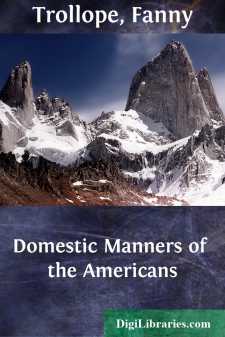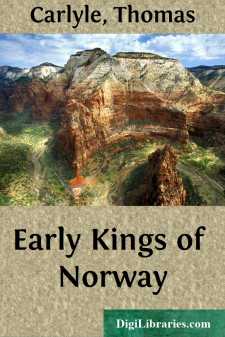History
- Africa 30
- Americas (North Central South West Indies) 50
- Ancient 68
- Asia 58
- Australia & New Zealand 8
- Canada 41
- Caribbean & West Indies 1
- Civilization 20
- Eastern Europe 12
- Europe 310
- Expeditions & Discoveries 60
- General 77
- Historical Geography 1
- Jewish 9
- Latin America 3
- Medieval 8
- Middle East 13
- Military 248
- Revolutionary 8
- Study & Teaching 5
- United States 353
- Western Europe 56
- World 13
History Books
Sort by:
by:
Cassius Dio
DURATION OF TIME M. Asinius Marcellus, Manius Acilius Aviola. (A.D. 54 = a.u. 807 = First of Nero, from Oct. 13th). Nero Caesar Aug., L. Antistius Vetus. (A.D. 55 = a.u. 808 = Second of Nero). Q. Volusius Saturninus, P. Cornelius Scipio. (A.D. 56 = a.u. 809 = Third of Nero). Nero Caesar Aug. (II), L. Calpurnius Piso. (A.D. 57 = a.u. 810 = Fourth of Nero). Nero Caesar...
more...
by:
Cassius Dio
BOOK 78, BOISSEVAIN.) [Sidenote: A.D. 211 (a.u. 964)] [Sidenote:—1—] After this Antoninus secured the entire power. Nominally he ruled with his brother, but in reality alone and at once. With the enemy he came to terms, withdrew from their country, and abandoned the forts. But his own people he either dismissed (as Papinianus the prefect) or else killed (as Euodus, his nurse, Castor, and his wife...
more...
AT LOUGH MASK. Westport, Co. Mayo, Oct. 24. The result of several days' incessant travelling in county Mayo is a very considerable modification of the opinion formed at the first glance at this, the most disaffected part of Ireland. On reaching Claremorris, in the heart of the most disturbed district, I certainly felt, and not for the first time, that as one approaches a spot in which law and...
more...
Laying the Hearthstones Introduction Successful colonization, contingent upon a stable domestic life, was quickened in Virginia with the coming of the gentlewoman Mrs. Lucy Forest and her maid Ann Burras, who with Mrs. Forest's husband Thomas, arrived in the second supply, 1608, following the planting of the colony at Jamestown, 13 May 1607. The possibility of finding a source of wealth in the new...
more...
by:
Fanny Trollope
CHAPTER 1 Entrance of the MississippiвÐâBalize On the 4th of November, 1827, I sailed from London, accompanied by my son and two daughters; and after a favourable, though somewhat tedious voyage, arrived on Christmas-day at the mouth of the Mississippi. The first indication of our approach to land was the appearance of this mighty river pouring forth its muddy mass of waters, and mingling...
more...
DRUG SUPPLIES IN THE AMERICAN REVOLUTION by George B. Griffenhagen At the start of the Revolution, the Colonies were cut off from the source of their usual drug supply, England. A few drugs trickled through from the West Indies, but by 1776 there was an acute shortage. Lack of coordination and transportation resulted in a scarcity of drugs for the army hospitals even while druggists in other areas...
more...
CHAPTER I. Synopsis of the Journey.—Crossing the Continent.—A Great Midland City.—Utah and the Mormons.—The Sierra Nevada.—San Francisco.—A Herd of Sea-Lions.—Possibilities of California.—The Love of Flowers.—Public School System.—Excursion to the Yosemite.—An Indian Stronghold.—Description of the Valley.—Passage of the Mountains.—Caught in a Snow-Storm.—A Forest of...
more...
by:
John Pinkerton
In the days of Plato, imagination found its way, before the mariners, to a new world across the Atlantic, and fabled an Atlantis where America now stands. In the days of Francis Bacon, imagination of the English found its way to the great Southern Continent before the Portuguese or Dutch sailors had sight of it, and it was the home of those wise students of God and nature to whom Bacon gave his New...
more...
by:
Grant Allen
CHAPTER I. THE ORIGIN OF THE ENGLISH. At a period earlier than the dawn of written history there lived somewhere among the great table-lands and plains of Central Asia a race known to us only by the uncertain name of Aryans. These Aryans were a fair-skinned and well-built people, long past the stage of aboriginal savagery, and possessed of a considerable degree of primitive culture. Though mainly...
more...
by:
Thomas Carlyle
CHAPTER I. HARALD HAARFAGR. Till about the Year of Grace 860 there were no kings in Norway, nothing but numerous jarls,—essentially kinglets, each presiding over a kind of republican or parliamentary little territory; generally striving each to be on some terms of human neighborhood with those about him, but,—in spite of "Fylke Things" (Folk Things, little parish parliaments), and small...
more...











